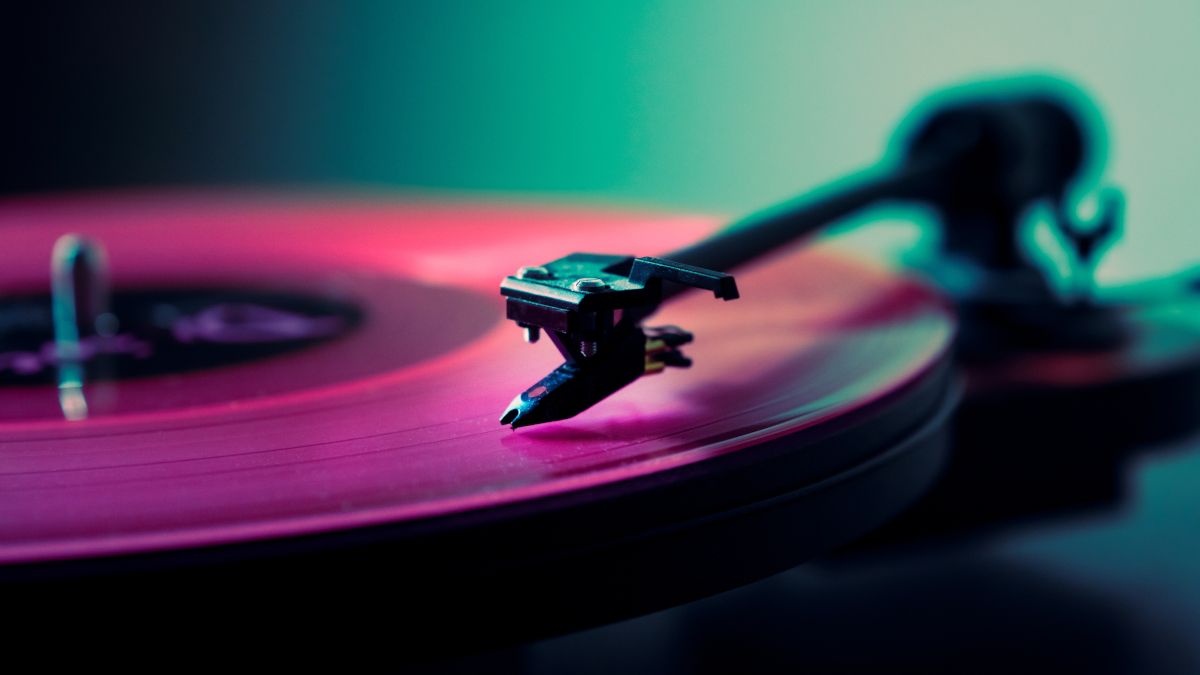Quick Links
Vinyl records are a great option for music fans who want to build a physical music collection. But getting started can be intimidating if you've only ever listened to music on your phone. Here's everything you need to know.
Start With a Turntable
The first thing you'll need to start listening to vinyl records is a turntable. But then comes the hard part: what should you be looking for in a turntable? Is it okay to use a budget turntable?
The good news is that budget turntables are better than ever. A cheap turntable these days often has similar performance to higher-end turntables from a few decades ago. While you can spend thousands on turntables, a budget model like the Audio-Technica AT-LP60X will handle everything you need.
An interesting aspect of turntables (and much in the world of high-end audio) is that spending more doesn't get you more features. As a matter of fact, budget turntables frequently pack in more features than high-end turntables aimed at the audiophile market. That's because higher-end models aim at optimizing the various components for sound quality, while budget turntables focus on features like Bluetooth connectivity that audiophiles won't miss.
Like most other home stereo components, choosing a turntable is about figuring out where you want to put your money. The highest quality turntables offer better sound quality, but it's certainly a case of diminishing returns, and most people will be perfectly happy with mid-range or even budget models.
Headphones or Speakers?
You'll also need an audio output device to plug that turntable into, as most models won't have built-in speakers or a headphone jack.
Headphones often prove to be cheaper to get started with than choosing speakers for a stereo, but this isn't always the case. You can get some great-sounding headphones for around $150, but that isn't all you'll have to spend if you don't already have an amplifier or A/V receiver.
If you're starting from scratch, your best bet for sound quality is to opt for a dedicated headphone amp. These aren't cheap, but they won't run you as much as a quality A/V receiver, and they'll often sound better.
Do you already have a home stereo? Then you're probably good to go. The only component you may need to add is a preamp to raise the turntable output to line level. This is only necessary if your receiver doesn't have a phono input and your turntable doesn't have a built-in preamp.
As a final option, you can use your home theater system if you have one. These often aren't ideal for music, but if you spent good money on a hi-fi home theater system, it will sound great. Just make sure to play back your records in stereo, not in "virtual surround," as this can degrade the stereo imaging.
Where to Buy Vinyl Records
Once you've got a turntable and a setup with headphones or speakers, it's time to start buying some records. Of course, just like everything else, you can find vinyl records on Amazon or other retailers, but that isn't where you'll necessarily find the gems.
There are multiple specialty online stores that carry vinyl, depending on what you're looking for. For more independent or under-the-radar artists and genres, you have Amoeba Music or even Bandcamp. Meanwhile, if you're more of a collector and know the exact pressing you're trying to find, there's Discogs.
None of these online options beat sifting through vinyl records in person, though. With pre-owned records, condition is a big factor, so it's nice to be able to inspect records with your own eyes before shelling out your precious cash for them. This is true for music stores, but just as true with garage sales and thrift stores.
Shopping for records is as much about the journey as it is about the destination, and searching through crate after crate before stumbling on a great find is part of the fun.
Caring for Your Collection
With digital music, we've fallen out of the habit of keeping physical music collections in shape. With vinyl, you'll need to be careful every time you put the needle down on the record and every time you pick it up, as this can damage both the needle and your records.
You'll also need to clean and maintain your equipment and your collection. For your turntable, this means occasionally replacing the needle or cartridge, while for your records this means keeping them clean. Fortunately, there are kits like the Big Fudge Vinyl Record Cleaning Kit that make this a simple job.
This may seem like a lot of work, and compared to listening to Spotify or Apple Music, it is. It's also much more rewarding, so take your time and enjoy the ride.

